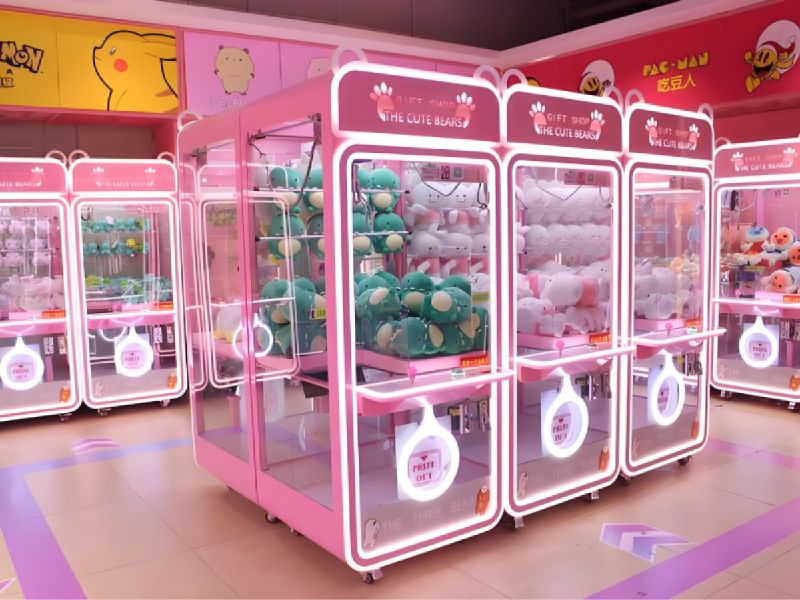According to Volza’s trade data, by August 2025, China had completed 366 claw machine exports, ranking No.1 worldwide and securing its role as the core of the global supply chain. For this reason, wholesalers, operators, and e-commerce sellers across the globe look to China, seeking affordable prices and diverse machine models to satisfy their entertainment markets.
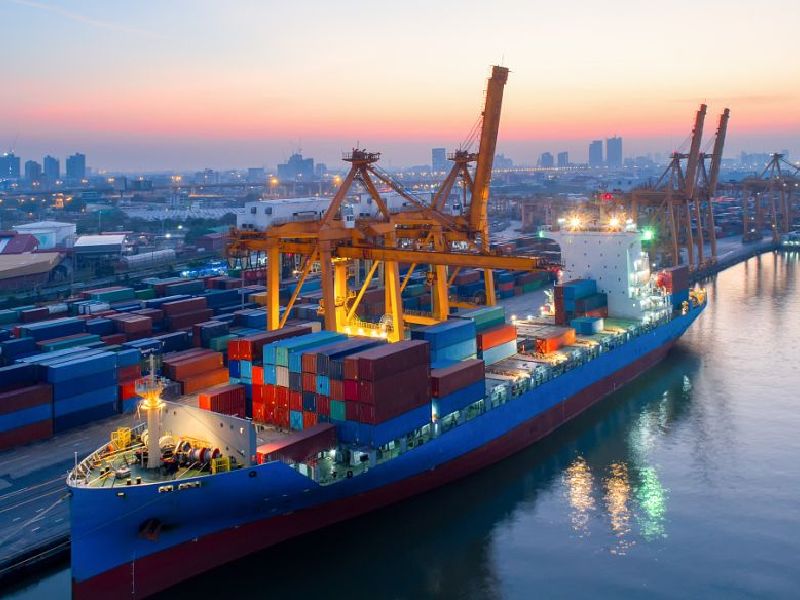
Still, opportunities always come hand in hand with challenges. While China is the biggest claw machine exporter, it’s not easy for overseas buyers to pick the right machine. With so many suppliers—some reliable, some not—it’s easy to fall into traps around pricing, certifications, after-sales, or logistics.
Backed by years of arcade claw machines export experience, GM Arcade knows exactly where buyers struggle. In this guide, we’ll share two key perspectives—a pitfall-avoidance checklist and the main buying channels in China—so you can make smarter choices and avoid costly mistakes when buying chinese claw machines.
Advantages of Buying Claw Machines from China
When sourcing claw machines from China, two advantages stand out: lower costs and a complete supply chain. With mature factories and a wide range of models, Chinese suppliers can easily adapt to market needs through OEM/ODM customization—whether that means custom lighting, exterior design, or payment systems.
Another plus is geography. Many manufacturers operate near major ports, combining strong production capacity with faster shipping. The result? Shorter lead times and more competitive prices. So whether you’re planning bulk purchases or simply testing the waters with a small order, China offers flexible solutions to fit your needs.
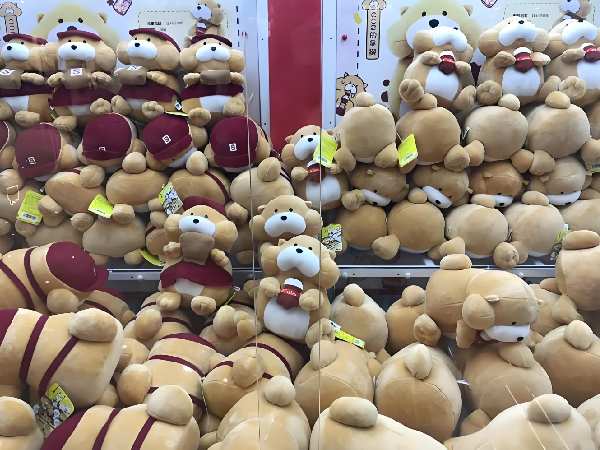
5 Pitfalls to Avoid When Buying Claw Machines from China
Of course, these benefits also come with risks. China’s claw machine market is full of options at every price point, and without industry knowledge, it’s easy to get trapped by cheap deals that later cause bigger problems. To save you from costly mistakes, here are five pitfalls you must avoid when buying claw machines from China:
1. Chasing low prices, ignoring quality
Many buyers—especially first-time entrepreneurs or small operators with limited budgets—are easily drawn to cheap offers. However, machines that are “too cheap” usually cut corners. Common issues include short motherboard lifespan, fragile claws that break easily, or unstable cabinet structures. While it may look like you’re saving money upfront, in reality, frequent breakdowns, repair costs, and machine downtime can end up costing you much more over time.
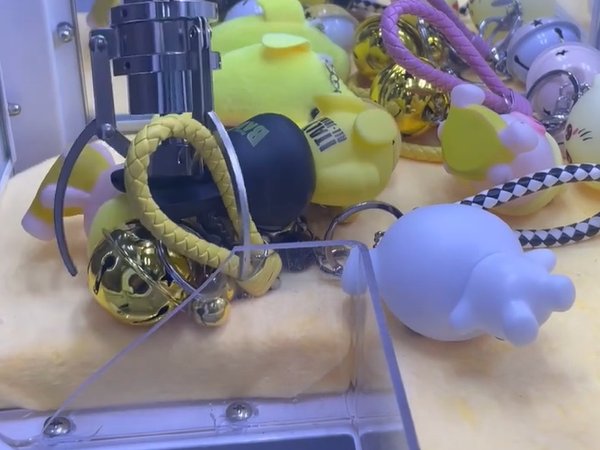
2. Overlooking certifications and customs clearance
When exporting claw machines to overseas markets, proper certifications are a must. Missing documents such as CE, FCC, or RoHS may cause your goods to be held at customs, leading to delays, fines, or even shipment rejection. These problems not only waste time but also create unexpected costs. That’s why, before placing any order, you must confirm with the supplier that all required certificates are complete and valid—never overlook this step.
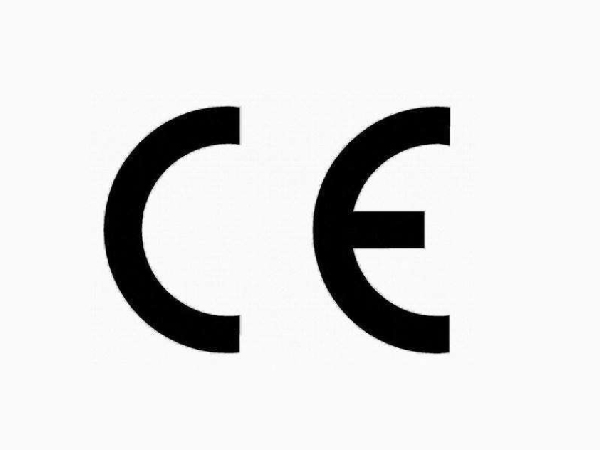
3. Weak after-sales support and missing parts
Some suppliers only focus on shipping the machines and provide no support afterward—no spare parts, no technical assistance. If your machine breaks down, you may have no way to repair it quickly, leaving it idle and adding to your operating costs. In contrast, reputable manufacturers—though their quotes may be slightly higher—usually include proper after-sales service and even ship spare parts along with the machines. From a long-term perspective, this is far more cost-effective and ensures smoother operations.
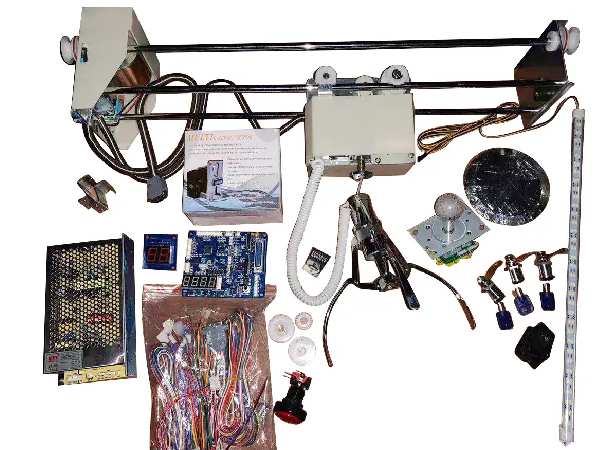
4. Not clarifying MOQ and hidden fees
Some factories attract buyers with low upfront prices, but later add extra charges such as mold fees, packaging fees, or transportation surcharges. If you don’t clarify these terms in advance, the final cost can easily exceed your budget. Always ask suppliers for a detailed cost breakdown—including MOQ requirements and any additional fees—before you commit to an order.
5. Trusting middlemen or fake companies
In China’s market, many middlemen pose as factories, and some “shell companies” don’t have any production capacity at all. Working with these suppliers often leads to delayed deliveries, unreliable product quality, or a complete lack of after-sales support. The safest approach is to cooperate directly with real factories. This way, you get transparent pricing, stable supply, and more dependable service guarantees.
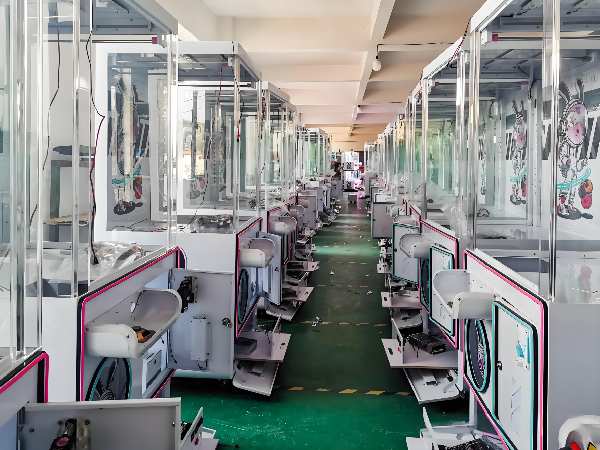
4 Common Channels for Buying Claw Machines from China
Now that we’ve gone through the major pitfalls, the next question is: where should you actually start if you want to buy reliable claw machines? In practice, there are four main procurement channels: direct factory sourcing, B2B platforms, trade fairs, and export agents. Each option suits different types of buyers and comes with its own considerations. Let’s break them down one by one.
1. Direct factory sourcing
Working directly with a factory is usually the safest and most reliable option, especially if you have plans for large-volume purchasing or long-term cooperation. By checking a factory’s official website, browsing industry directories, or requesting a video call, you can get a clear look at its production lines, scale, and real manufacturing capacity.
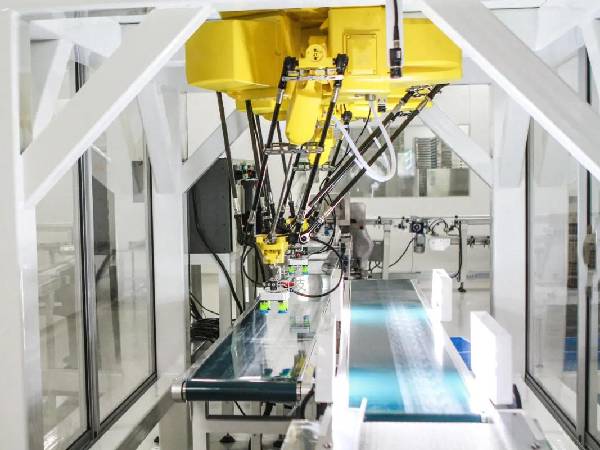
As one of China’s leading claw machine manufacturers, GM Arcade brings over 16 years of export experience and offers a diverse lineup of claw machines—including standard models, two-player machines, and compact mini machines for smaller venues. The company not only delivers reliable, high-quality products but also supports full customization based on your needs, from exterior design to game functions and payment options.
Best of all, to make it easier for new buyers to try our products, GM Arcade has introduced a special policy before 2025: orders start from just 1 unit. Whether you’re testing the market or running a small-scale business, you can get started quickly and with minimal risk.
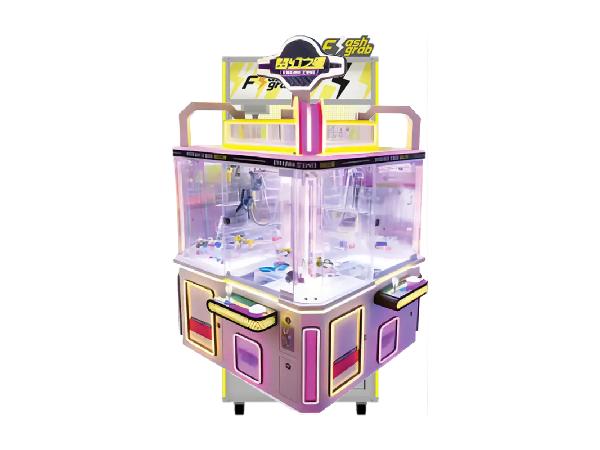
2. B2B platforms (Alibaba, Made-in-China, etc.)
Cross-border B2B platforms are one of the most common ways for overseas buyers to discover Chinese suppliers. Sites like Alibaba, Made-in-China, and GlobalSources host a wide range of claw machine manufacturers. Buyers can easily compare models, features, and prices side by side, making these platforms convenient for initial screening. Compared with direct factory sourcing, B2B platforms usually have lower MOQs, and many listings even support single-unit purchases. This makes them especially suitable for individual entrepreneurs, small-scale operators, or anyone wanting to test the market with a trial order.
That said, supplier quality varies widely. Some are genuine factories, but many are trading companies—or even shell firms with no production capacity at all.
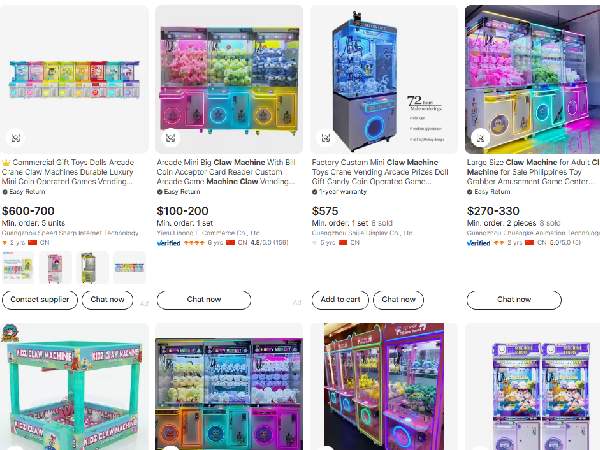
Pitfall tip: Always check the supplier’s credentials carefully. Review their trade history and customer feedback, and whenever possible, request a video call to confirm that the factory truly exists and has real production capacity.
3. Industry trade fairs (Canton Fair, Asia Amusement & Attractions Expo, etc.)
Trade fairs are one of the best ways for buyers to connect directly with real factories. Major events like the Canton Fair and the Asia Amusement & Attractions Expo gather a wide range of amusement equipment manufacturers in one place. At these fairs, you can see and test the claw machines in person, check the build quality, and discuss customization needs face-to-face with suppliers.
The advantage of trade fair sourcing is that options are concentrated and risks are easier to control. It’s an ideal approach for buyers with long-term procurement plans, larger batch requirements, or those seeking stable partnerships. While attending a fair can be more costly, it significantly reduces the risk of working with unreliable suppliers.
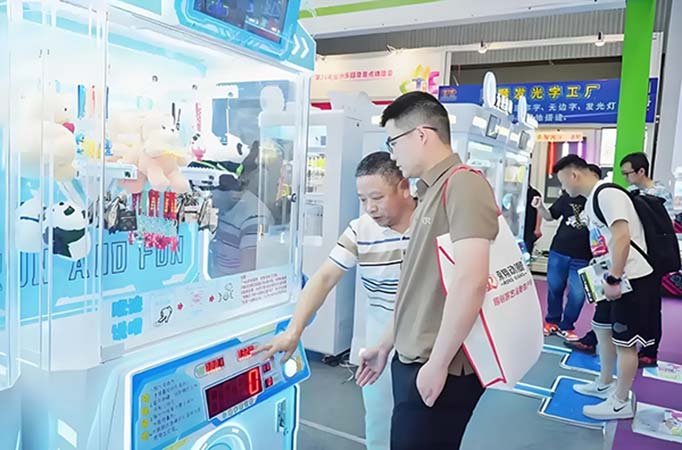
Pitfall tip: If your budget is tight, start by browsing the online exhibitor directory and product catalog. Shortlist your target suppliers first, then decide whether it’s worth visiting the fair in person for deeper discussions.
4. Export agents or sourcing intermediaries
For buyers who lack experience or don’t have time to handle every detail, export agents or sourcing intermediaries can be a convenient solution. These agents are familiar with the local market, help screen factories, negotiate prices, and even manage logistics and customs clearance. This saves buyers from many complicated processes.
This channel is best suited for first-time buyers sourcing from China, those unfamiliar with the industry, or companies without a dedicated procurement team. However, the quality and professionalism of agents vary greatly. Choosing the wrong one can lead to unnecessary costs, delays, or disputes.
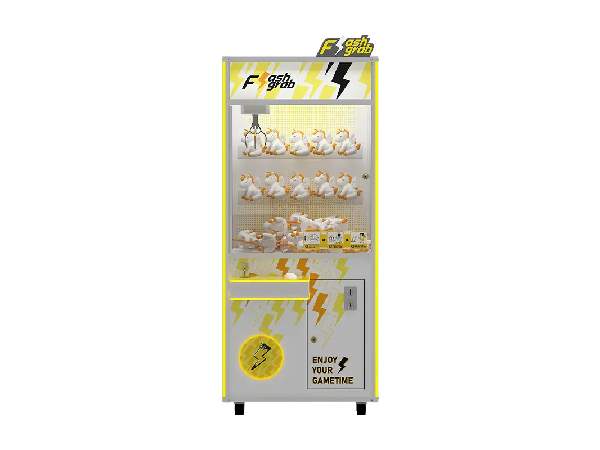
Pitfall tip: If you do need to rely on an agent, choose one with solid industry experience and good client references. Always sign a clear contract that outlines pricing and after-sales terms to avoid hidden losses.
Conclusion
In summary, no matter which procurement channel you choose, one core principle remains the same: always prioritize factories with real production capacity, complete certifications, and reliable after-sales service. This ensures not only product quality and on-time delivery but also smoother and more secure operations for your business.
There are many trustworthy manufacturers and wholesalers in regions like South China and East China. To minimize risks, we recommend following a step-by-step approach: start with a small trial order → verify the factory via video call or on-site visit → confirm spare parts and after-sales terms → then gradually increase the order volume.
If you’re looking for a long-term, reliable partner, GM Arcade is ready to work with you to unlock new opportunities in the claw machine business. Feel free to contact us anytime—we’ll respond promptly with the support you need.
